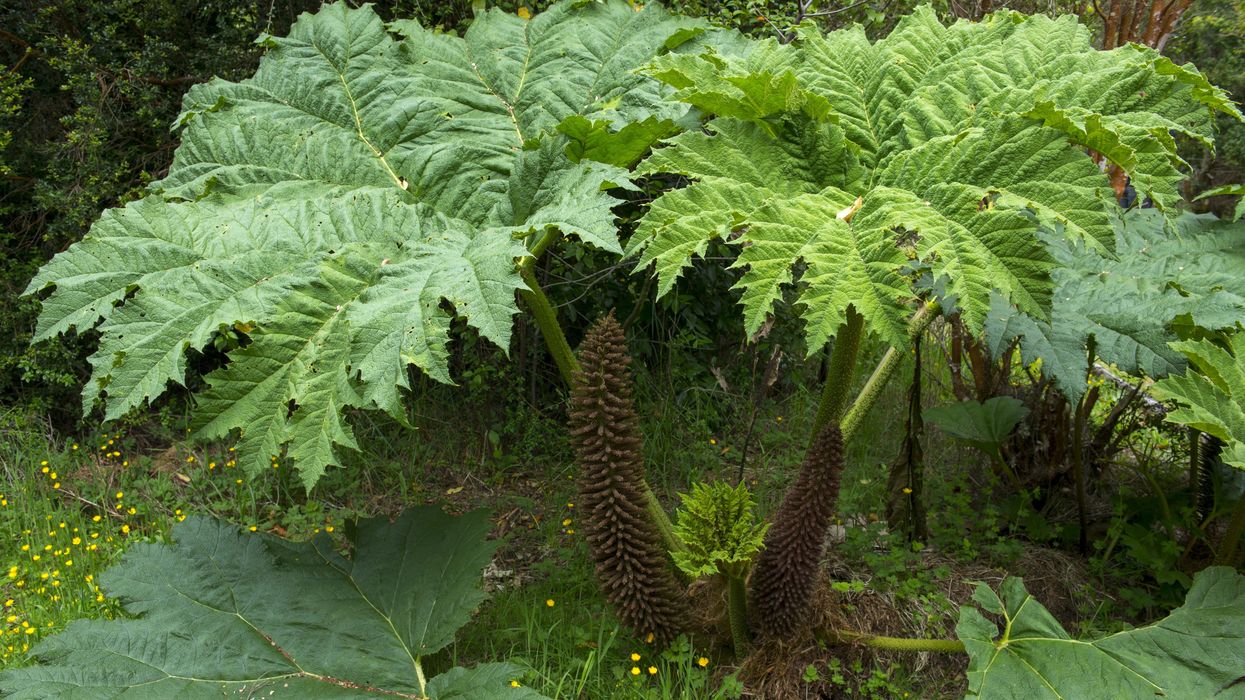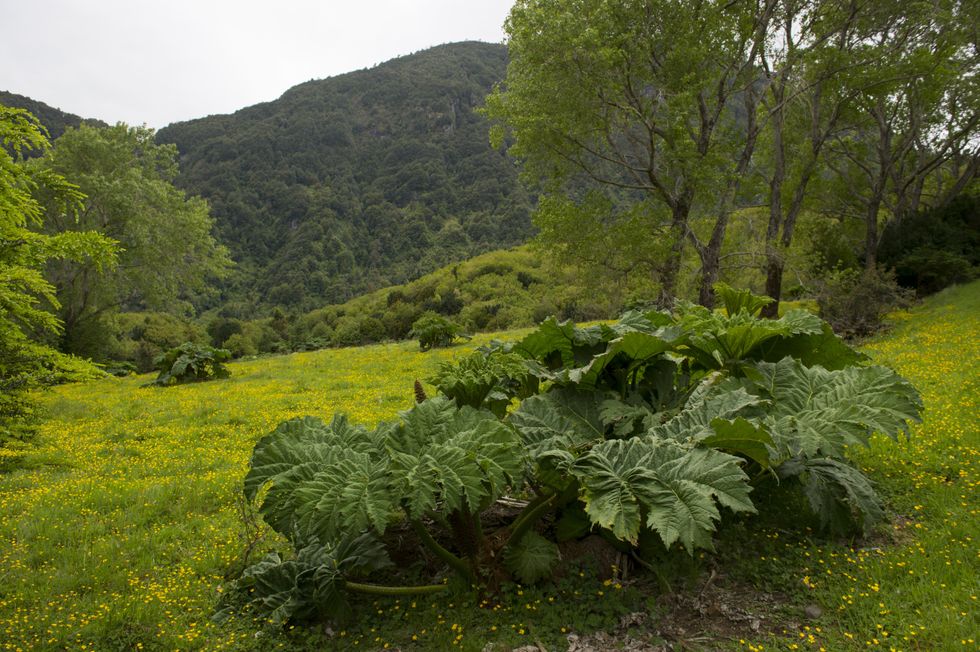Popular garden plant BANNED after it turns out to be rapid-spreading invasive species

Chilean rhubarb in the forest in Aiken del Sur Private Park near Puerto Chacabuco
|GETTY

People who have it in their gardens must ensure it does not spread
Don't Miss
Most Read
A popular garden plant has been banned after being identified as a rapidly-spreading invasive species.
The South American giant rhubarb plant, also known as Gunnera, spreads quickly and chokes native flora.
Gunnera, with its dramatic leaves and sprawling structure, is often seen in the grounds of stately homes and multiple National Trust properties.
However, the Government is now enforcing a ban meaning it cannot be sold or cultivated.
WATCH NOW: Channel 4 discuss climate change and gardening
People who have it in their gardens must ensure it does not spread.
The ban is similar to the one imposed on Japanese knotweed.
There are supposedly two species of giant Gunnera plants in Britain.
Gunnera manicata is a relatively benign Brazilian and Chilean plant.
LATEST DEVELOPMENTS:
The Chilean rhubarb in the forest in Aiken del Sur Private Park near Puerto Chacabuco
|GETTY
However, Gunnera tinctoria is highly invasion and spreads very quickly.
The sale and cultivation of the latter has been banned since 2017.
But the former was widely available and seen as exotic.
A recent study by the Royal Horticultural Society confirmed Gunnera manicata appears to have been lost from cultivation not long after it was introduced.
It has been replaced by a hybrid between G manicata and G tinctoria, which has been named Gunnera × cryptica.

In The Foreground Sheets of The Gunnera Manicata In The Park
|GETTY
The hybrid has been listed as a “species of union concern” under an EU regulation, and is now listed as being of “special concern” in the UK.
Advice from the Department for Environment Food and Rural Affairs subsequently said the hybrid should be treated as a banned species.
John David, head of horticultural taxonomy at the RHS, said: “When we began our research we were using Gunnera to look at the difficulties in differentiating between an invasive species and its non-invasive close relatives.
“It was therefore a surprise to find that a plant that has been a firm favourite in our gardens for its impressive size and exotic appearance, turned out to be an undetected hybrid.
“This would not have been possible without the help of botanists in Brazil and Chile, where these plants originate, as well as many others who provided material that enabled us to prove the disappearance of one species and the discovery of the new hybrid.”










